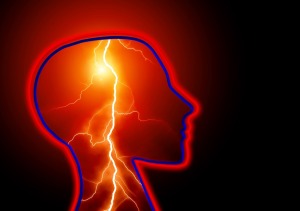 Last week, I was on a call with a life coach who was pitching their neuro-based approach to peak performance. They’re a trained neuropsychologist, and they had a handful of ways to “hack” the brain so you can basically flip the switch on your success. Super-charge it. Turn it on in ways that we usually instinctively turn it off.
Last week, I was on a call with a life coach who was pitching their neuro-based approach to peak performance. They’re a trained neuropsychologist, and they had a handful of ways to “hack” the brain so you can basically flip the switch on your success. Super-charge it. Turn it on in ways that we usually instinctively turn it off.
Okay, great. I’m always up for ways to do that. I’ve been doing it, myself, for years, using neuropsychological principles.
But a couple things jumped out at me during that call, that seemed really really stupid. And I don’t mean “stupid” in a way that belittles people with cognitive difficulties. I mean it in the way that professionally trained people who should know better are leading people down a path that goes directly against what they should know, due to their professional training.
Before I go on, let me say that one of the things that discouraged me from keeping up this blog has been all the professional input about concussions, over the past several years, that has not helped. There’s a whole “concussion industry” that’s giving people really mixed messages – from people who have never sustained mTBIs or other sorts of brain injuries (that they’re admitting, anyway). And it’s made it all the harder to have a conversation about what mTBI is, how it affects you, and what you can actually do about it. I mean… I just don’t know where to start.
More on that later. Let’s get back to the professional stupidity.
Okay, so I was on this call, and the neuropsych was telling people that we can turn our lives around by breaking mental barriers. Find something that you’re afraid to do, and do it over and over and over again, using “exposure therapy”. Address your core beliefs about who you are and what you think you can do. Overcome those beliefs by not telling yourself over and over that you can’t do something. Use visualizations to “pre-wire” your system for success. And get comfortable with uncertainty.
All sorts of alarms went off with me on this, especially because the person talking admitted to having been very close with someone who had sustained a TBI years before they met them, and they had ignored the warning signs of suicidal thoughts… they’d even encouraged them to just take some anti-depressant meds — the very same meds which will set off someone with a history of TBI. Long story short, just after they told their friend to take some meds, that friend killed themself. Traumatic, to be sure.
And just as traumatic was the idea that someone who was trained as a neuropsychologist was telling someone to do something (take meds) that even I, from passing conversations with a neuropsych, know can be hugely problematic for a brain injury survivor.
Not only that, but this person was positioning themself as an expert in brain topics, immediately after revealing this massive “tell” about just how clueless they were/are.
Um. Okay.
And then they proceed to talk about how doing things like facing your fears, visualizing, and self-talk will get you on the right track and turn your life around.
Well, okay, so for a lot of people it will do that. But for someone with underlying physiological neurological issues (e.g., someone whose wiring has been rearranged by concussion/traumatic brain injury), those things will only go so far.
It would have been much more helpful, if they’d called out the fact that people with organic/physiological brain issues operate by different rules. And we have to live by those rules, day after day, if we’re going to be able to do things like visualize and self-talk our way to success.
Things like:
- Get enough sleep
- Drink enough water / stay hydrated
- Get regular exercise
- Find ways to calm down the over-active and easily amped-up system
- Keep your blood sugar steady by eating decent meals regularly (and stay away from junk food)
- Have a daily routine that reinforces your understanding of who you are and what you can reasonably expect of yourself, day after day.
If we TBI survivors don’t take care of the basics — food, water, sleep, routine — nothing else is worth much. At all.
And my heart aches for all the people (like me) out there who are being told, each and every day, that their failures are due to bad messages they’re giving themselves, or letting their fear run their lives. I think it was such a waste for the neuropsych’s friend to lose their life (in part) because of the terrible advice that they should have known better than to give. I also get so sick and tired of people lecturing me/us about how we just need to get our attitudes aligned with the right sort of mentality, and then our lives will dramatically change for the better. Never mind the underlying issues with fatigue and irritability and not knowing what the h*ll to expect from ourselves and our systems, from moment to moment, because our brain injury has turned us into someone we don’t recognize anymore. We’re being blamed for results that stem directly from our organic/physiological situation, without anyone even admitting that getting your wires crossed by a car accident, a fall, an assault, or a tackle gone wrong, can and does have an effect on your brain’s function.
Now, don’t get me wrong. I do believe that pretty much all of us spend way too much time being afraid and telling ourselves the wrong things about ourselves and our chances. We don’t do enough of the kinds of things that can and will make us successful. And we generally don’t have the right mentality that sets us up for success.
But none of those performance-enhancement approaches are going to get much traction, if we don’t address the physical facts of our neurological situation. Failure is not all in our minds. It’s also in our brains. And until we learn to support / heal our brains and do the things we need to do — regularly, routinely, predictably — all the self-talk in the world isn’t going to be much help. At all.
Until we get ourselves on a good schedule – and stay there – eat the right foods (for us), drink enough water, exercise on a regular basis, and get decent amounts of sleep on a regular basis… Until we develop a new Sense Of Self that tells us who we are and what we can expect from ourselves… Until we redefine ourselves in ways that are solid and predictable… those mentality tactics are just going to be all in someone’s mind.
And the fact that a neuropsychologist was spouting all this stuff without prefacing their talk with a disclaimer… well, that just pisses me off. If they’d said something like, “What I’m about to share is intended for people without underlying neurological issues, some of which may have been sustained a long time ago, but are still having an impact in you life”, it would have set much better with me.
But they didn’t. So, there we are.
Oh, well. It’s a beautiful Sunday, and I have another 24 hours till I have to be ON for work again. So, I might as well enjoy myself. This isn’t the first time this sort of professional stupidity took the steering wheel. And it certainly won’t be the last.
Life goes on.
So, onward.

